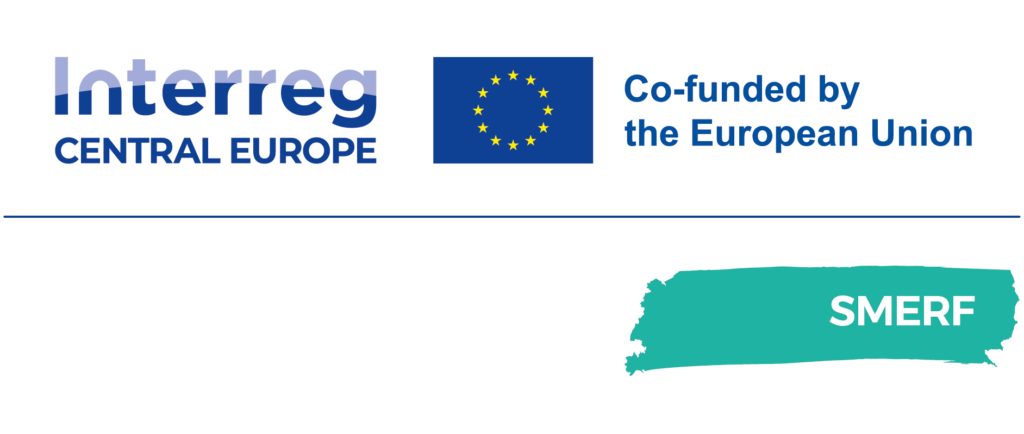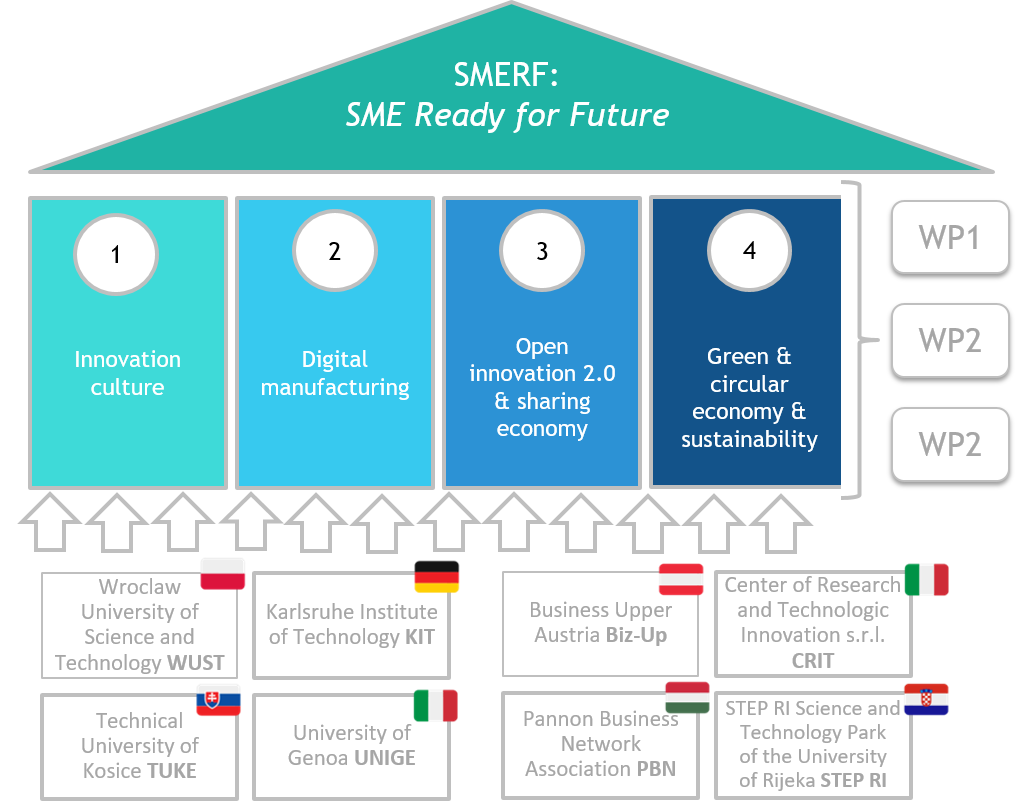
SMERF: SME Ready for Future, Central Europe Interreg, no. 2,486,517.00, budget: 4,5 mln EUR, 2023 – 2026
SMERF, following the approach based on cross-regional Quintuple Helix Innovation Model, aims at:
(1) supporting low-tech and medium-tech SMEs transition towards companies ready for the future in 4 pillars:
- Innovation culture,
- Digital manufacturing,
- Open innovation 2.0 & sharing economy,
- Green & circular economy & sustainability,
(2) providing new services to HEIs and innomediaries that will enhance their competences and equally support SMEs beyond borders.
The SMERF project (SME Ready for Future) focuses on developing models and tools to effectively support the transformation of low- and medium-level technological SMEs towards future readiness. The project aims to create new service models for higher education institutions and business environment supporting institutions (innomediaries) to enhance their competencies while assisting SMEs in their transformation journey. The main research objectives of the SMERF project cover four pillars:
- Innovation Culture
- Digital Manufacturing
- Open Innovation 2.0 and Sharing Economy
- Green & circular economy & sustainability
The project is implemented by a consortium of four universities from Poland, Germany, Italy, and Slovakia, along with four innomediaries from Austria, Hungary, Croatia, and Italy.
The project structure consists of three main work packages (WP):
· WP1: Development of the transformation process concept from SMEs to SMEs ready for future challenges (SMERF).
· WP2: Research on enterprises according to the SMERF model: SMEs ready for future challenges.
· WP3: Innovation ecosystem development – support for SMEs.

The overarching research goals of the project include developing the concept of transforming SMEs into SMEs ready for future challenges, conducting research on enterprises based on the SMERF model, and fostering innovation ecosystems to support SME transformation.
To achieve these research objectives, several key outcomes will be produced, including:
- an Inspiration Knowledge Base for the four project pillars,
- the SMERF strategy and action plan,
- an innovative audit methodology for SMEs ready for future challenges,
- the SMERF Diagnosis Tool for generating transformation scenarios,
- training programs, support services, study visits, webinars,
- and a SMERF handbook.
Additionally, exploratory research will be conducted on regional innovation policies and the transfer of best practices from more innovative regions to less innovative ones.
The SMERF model, to be developed and verified through interregional research in seven participating countries, will address organizational innovation culture, digitalization in production, open innovation practices, and sustainable development aligned with the European Green Deal.
The project will be carried out in the regions of Lower Silesia (Poland), Upper Austria (Austria), Emilia-Romagna (Italy), Baden-Württemberg (Germany), Western Transdanubia (Hungary), Adriatic Croatia (Croatia), Liguria (Italy), and Eastern Slovakia (Slovakia).
